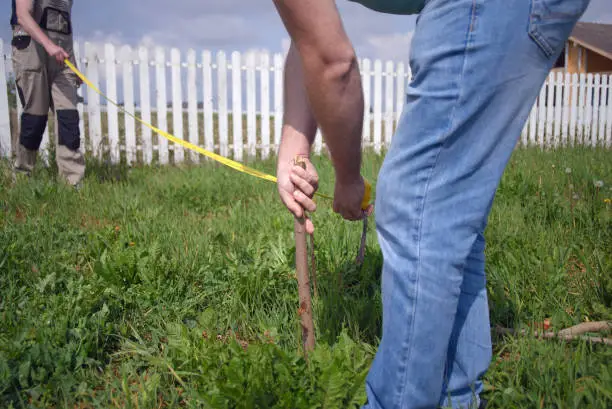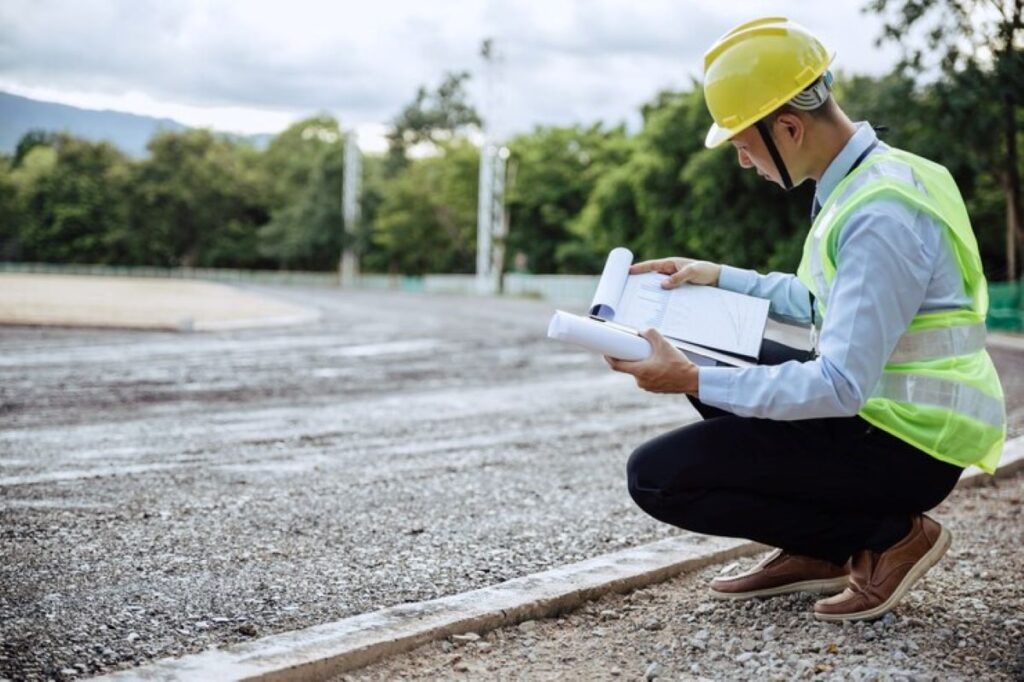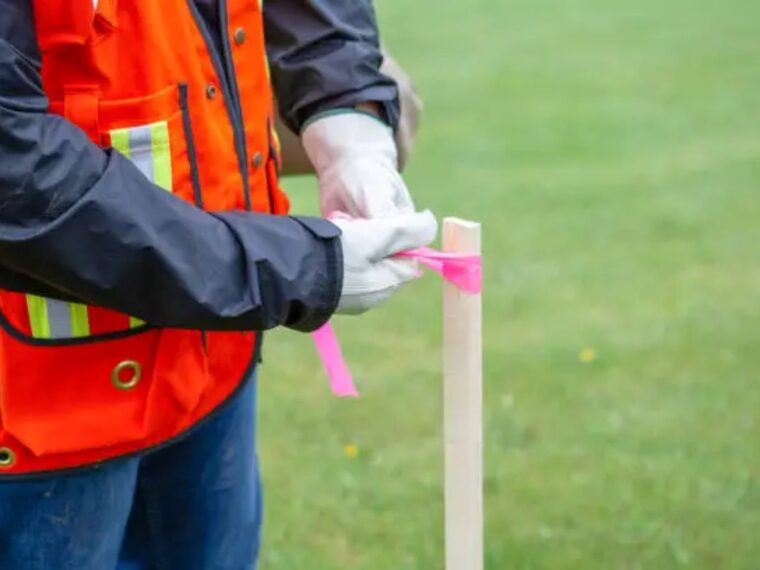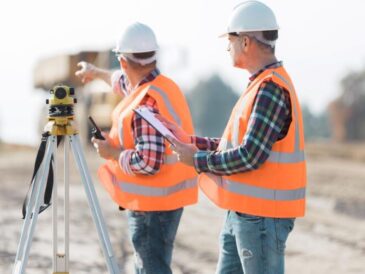In the realm of property ownership and development, the significance of precise boundary measurements cannot be overstated. Whether you are purchasing a new property, planning a construction project, or resolving a dispute with a neighbour, the accuracy of your property’s boundaries is crucial. This is where the expertise of a boundary surveyor becomes indispensable. A boundary surveyor is a professional who specialises in defining and mapping out the exact lines of a property, ensuring that all parties involved have a clear understanding of the property’s limits. This article delves into the myriad reasons why hiring a boundary surveyor is essential for accurate measurements and the benefits it brings to property owners.
Understanding the Role of a Boundary Surveyor
Boundary surveyors play a pivotal role in the property sector. Their primary responsibility is to determine the precise boundaries of a property. This involves a combination of fieldwork, research, and technical expertise. By employing advanced surveying equipment and techniques, boundary surveyors can provide a detailed map of a property’s perimeter, which is crucial for various legal and practical purposes.
In addition to measuring boundaries, surveyors also interpret historical data, such as deeds and land records, to understand how a property’s boundaries have evolved over time. This historical context is vital, especially when discrepancies arise between current measurements and past records. Surveyors are trained to resolve these discrepancies by providing evidence-based conclusions that can be used in legal settings if necessary.
Moreover, boundary surveyors offer invaluable advice to property owners. They can guide you through the complexities of land ownership, helping you understand your rights and responsibilities. This guidance is particularly beneficial when dealing with contentious issues such as encroachments or easements, where a clear understanding of boundary lines is essential.
Why Accurate Boundary Measurements Matter
Legal Implications
Accurate boundary measurements have significant legal implications. Property disputes often arise from misunderstandings or disagreements over boundary lines. These disputes can lead to costly legal battles and strained relationships with neighbours. By hiring a boundary surveyor, property owners can prevent such conflicts by having a definitive and legally recognised boundary map.
Furthermore, accurate boundary measurements are essential for compliance with local planning and zoning laws. When embarking on construction projects, it is imperative to ensure that all structures are within the legal boundaries of the property. Failure to do so can result in legal penalties, fines, or even the demolition of non-compliant structures.
Financial Considerations
From a financial perspective, accurate boundary measurements can protect your investment. When purchasing a property, knowing the exact boundaries ensures that you are getting what you pay for. It prevents the risk of encroachments, where a neighbour’s structure may inadvertently extend onto your property, potentially affecting its value.
Additionally, accurate boundary surveys can enhance the marketability of a property. Prospective buyers are more likely to invest in a property with clearly defined boundaries, as it reduces the risk of future disputes and provides peace of mind.
Planning and Development
For those involved in property development, accurate boundary measurements are crucial for effective planning. They provide a clear framework within which architects, builders, and planners can work. This ensures that all development activities are conducted within the legal confines of the property, thereby avoiding potential legal issues.
Moreover, accurate boundary measurements facilitate efficient land use. By understanding the exact dimensions and shape of a property, developers can optimise the use of available space, ensuring that every square metre is utilised effectively.
The Process of Conducting a Boundary Survey
Initial Consultation and Research
The boundary survey process begins with an initial consultation between the surveyor and the property owner. During this meeting, the surveyor will gather information about the property, including any existing boundary disputes or concerns. This is followed by thorough research, where the surveyor examines historical land records, deeds, and any previous surveys conducted on the property.
This research phase is crucial as it provides the surveyor with a comprehensive understanding of the property’s history and any potential issues that may arise during the surveying process. It also helps in identifying any discrepancies between historical records and current physical boundaries.

Fieldwork and Data Collection
Once the preliminary research is complete, the surveyor proceeds with the fieldwork. This involves visiting the property and using specialised surveying equipment to measure the land accurately. The surveyor will place markers at key points along the boundary lines, which serve as reference points for the final boundary map.
During the fieldwork, the surveyor may also take note of any physical features that could affect the boundary lines, such as fences, walls, or natural landmarks. These observations are crucial for ensuring that the final boundary map is as accurate and comprehensive as possible.
Analysis and Reporting
After collecting the necessary data, the surveyor analyses the information to create a detailed boundary map. This map includes precise measurements and clearly defined boundary lines, which are crucial for legal and practical purposes. The surveyor will also prepare a report that outlines the findings of the survey, including any discrepancies or potential issues that were identified during the process. Learn more about how a detailed survey helps prevent legal disputes.
This report serves as a valuable resource for property owners, providing them with a clear understanding of their property’s boundaries and any potential legal implications. It can also be used as evidence in legal proceedings if disputes arise in the future.
Choosing the Right Boundary Surveyor
When selecting a boundary surveyor, it is essential to consider their qualifications and experience. A qualified surveyor should be licensed and have a proven track record of conducting accurate and reliable surveys. It is also beneficial to choose a surveyor who is familiar with the local area, as they will have a better understanding of regional land laws and regulations.
In addition to qualifications, it is important to consider the surveyor’s reputation. Reading reviews and seeking recommendations from previous clients can provide valuable insights into the quality of their work and their level of professionalism. A reputable surveyor will have a history of satisfied clients and a commitment to delivering accurate and reliable results.
Finally, consider the surveyor’s communication skills. A good surveyor should be able to explain complex technical information in a way that is easy to understand. They should also be responsive to your questions and concerns, providing clear and timely updates throughout the surveying process.

Conclusion
In conclusion, hiring a boundary surveyor is a wise investment for any property owner. Their expertise ensures that property boundaries are accurately measured and clearly defined, providing peace of mind and protecting your investment. Whether you are purchasing a new property, planning a development project, or resolving a boundary dispute, a boundary surveyor can provide the clarity and accuracy you need to make informed decisions. By choosing a qualified and reputable surveyor, you can ensure that your property’s boundaries are in safe hands, safeguarding your interests for years to come.



